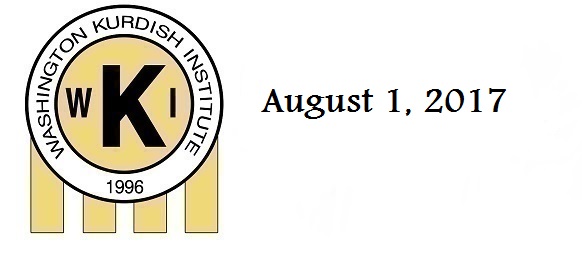956
Iran
- On July 30, the Iranian regime killed a Kurdish merchant in Baneh city. According to a report from the Kurdistan Human Rights Association, the military forces of the regime shot Ibrahim Rahmani without any previous warrant against him. Rahmani and other Kurdish border porter known as Kolbars were fired at by rifles and their carrying goods were confiscated. Due to the high unemployment rate among in the Kurdish areas, many Kurds work on the border with Iraqi Kurdistan carrying goods in and out of the country.
- Hundreds of ethnic Kurds have left Iran to seek asylum in the Turkish province of Van. Individuals and families have left the Islamic Republic citing fear from government authorities and human rights violations such as torture. One of the men seeking asylum told reporters of his reasons while sitting beside a portrait of Abdul Rahman Ghassemlou, a Kurdish political leader allegedly assassinated by Iranian agents on Austrian soil in the city of Vienna circa 1989.
Iraq
- Islamic State militants attacked a contingent of Peshmerga near the town of Tuz Khurmatu of Selahaddin Province south of Kirkuk. The importance of the site is primarily strategic as it falls at the crossroads of two highways 2 and 55 on the Ak Su River. By targeting the Peshmerga, ISIS terrorists attempt to reach Diyala Peshmerga forces report victory in fending off the attack but have suffered casualties. Peshmerga has dug dozens of miles in trenches and received reinforcements to deter future attacks, but will likely face continued combat.
- A symposium was held in Washington, DC on Kurdistan with panelists consisting of authors, journalists, former generals, Kurdish politicians, political analysts, and businesspeople. Topics of discussion focused not only on the upcoming referendum to be held in September, but also the state of security, the economy, and minority rights. Highlights came from Brigadier General Ernie Audino’s views on the “One Iraq” policy.
- Elated families returned to the towns of Zummar-Mosul and Makhmour- Arbil following its liberation from the Islamic State. The Arab families are among a larger expected wave of Internally Displaced People (IDP) to return to their homes. Iraqi Government officials have expressed plans to bring needed utilities to the liberated towns such as water and electricity.
Syria
- On July 30, the Turkish military entered the suburbs of the Syrian Kurdish town of Kobani. Pro-Kurdish media reported Turkish troops been stationed west of Kobani in west in Siftek and Bobanî villages. A commander of the U.S. backed People’s Defense Units (YPG) warned of their right to “defend against he Turkish occupation “if the Turkish army tried to attack the Kurdish areas.
- Syrian Democratic Forces (SDF) continue to battle against the Islamic State in the streets of Raqqa, the onetime capital of the terrorist group’s Syrian territories. Land mines killed children and SDF fighters. It is expected that there are still tens of thousands of civilians in the city. The SDF has been attempting to move civilians out of the city due to the ongoing conflict, but the Islamic State has made this difficult with their use of snipers, tunnels, and IEDs.
- The World Food Program will now be delivering needed food by way of the Aleppo-Manbij highways rather than airlifting it into Qamishli. The opening up of the highway has been done by the Syrian regime. The trucks are expected to deliver aid to an estimated 110,000 people. This is unlikely to be sufficient in providing for the large body of IDPs and refugees living in Rojava (Syrian Kurdistan) especially with the pending liberation of Raqqa.
Turkey
- The government of Turkey stripped two Kurdish politicians of the People’s Democratic Party (HDP) from their seats due to absenteeism. Already under judicial review for their alleged support of the Kurdistan Workers’ Party (PKK). Tugba Hezer Ozturk and Faysal Sariyildiz are believed to be in Europe. Under the direction of President Recep Tayyip Erdogan and the AKP, scores of HDP politicians have been jailed in what the international community has determined to be authoritarianism.
- After Turkish authorities had cordoned off a park in the Kurdish city of Diyarbakir where the HDP were planning to protest, party officials announced their intention to protest against Erdogan in Istanbul. The park was closed off by thousands of police officers. HDP marches in Istanbul may receive mixed reactions.

